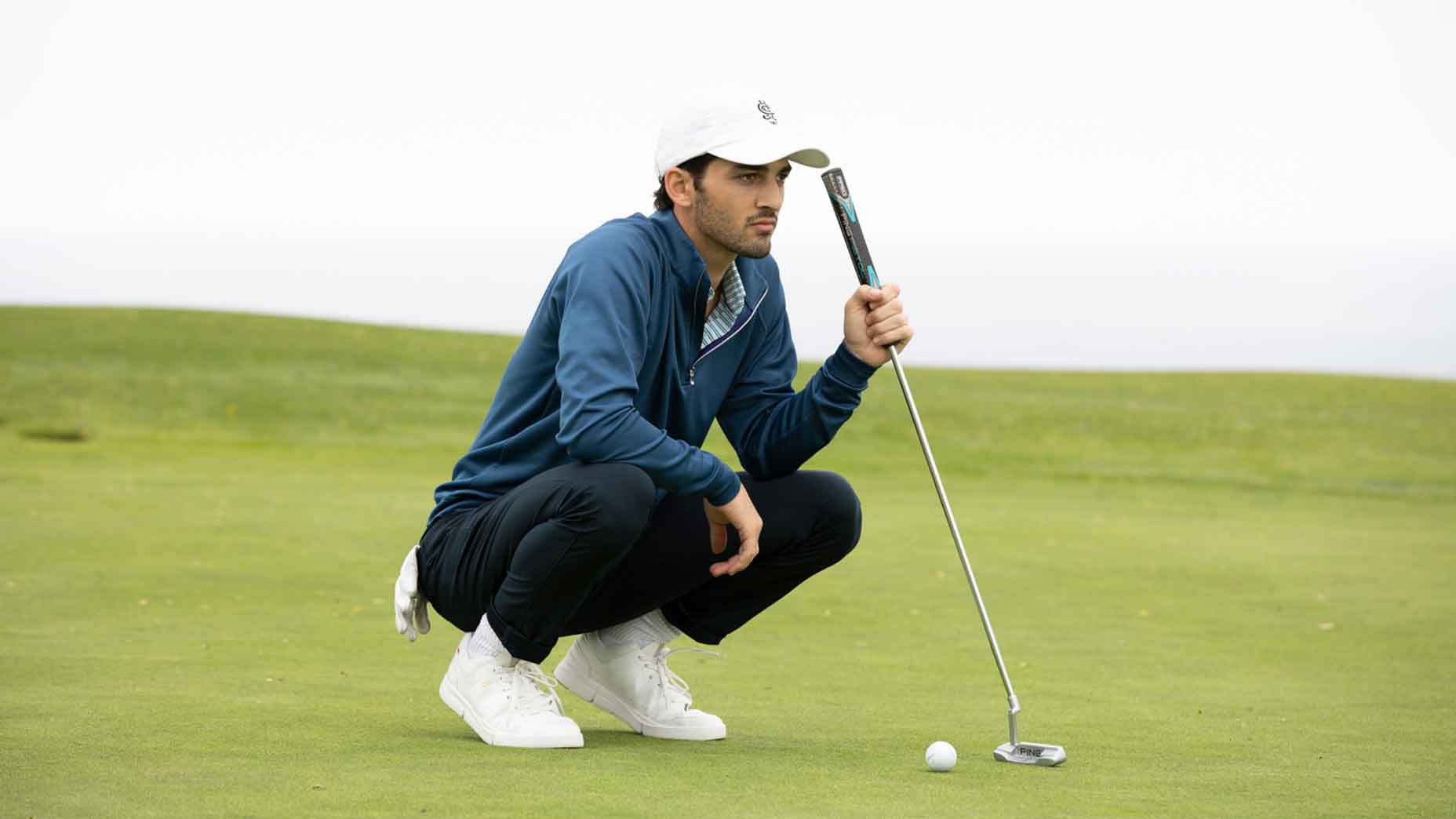More than three million players carry a USGA handicap. In a collaboration between GOLF and the USGA, we were able to identify five of the most improved golfers in America, who lowered it, percentage-wise, more than any other players in the past year. Each player is proof that there’s always a chance to shoot your dream score. Don’t have a handicap yet? Sign up for one right here.
***
ICYMI: How this single-digit handicap became a scratch player
ICYMI: How this amateur went from shooting in the 90s to breaking 80
ICYMI: How this high-handicapper shaved 13.5 strokes to win a local golf challenge
Eduardo Jinich, 21, Los Angeles / Handicap change: 21.1 to 12.5 (43% improvement)
Turns out, you can get what you want — if you set the right goal.
“I had always played clubs passed down from my dad, brother or from my grandpa,” says Eduardo Jinich, a college student. “And I really wanted to get my own set of clubs for the first time.”
A lightbulb went off in his head: If he could prove to his dad that he had interest in improving at golf, he could get his own set of clubs — but he had to commit to at least three golf lessons.
“So I made a deal with my dad,” he says. “If I went to three classes within a month and kept track of my scores in the USGA handicap app, I’d get a new set of clubs.
“I didn’t just take three lessons. I took a lot more.”
The combination of a simple incentive mixed with the lessons kept Jinich motivated. He found himself playing a lot more golf, beginning to understand his own strengths and weaknesses. This new, hyper-focused plan of attack helped Jinich improve his handicap from a 21.1 to a 12.5 in just seven months. It also reminded him that he didn’t need to be perfect on every single shot because he already knew his strengths in certain areas.
“I used to get really frustrated. I even left the course a couple of times because I was so mad with myself, and I just couldn’t keep going,” he says.
“But it was cool to walk off a course and know exactly what I did better than other things. I could shoot a really good score, but I didn’t hit any fairways. Okay, so maybe the driver doesn’t matter as much if my irons are on point.”
With a clear mind and a positive approach to each shot, Jinich says he’s had a newfound joy for the game — and he gets to share it with both his dad and brother.
“My dad now has the chance to spend four-plus hours with me and my brother. So, for him, it’s less about the game. He always tells me: ‘If you’re playing bad, it’s okay. We’re out here on beautiful courses and spending time together.’”
